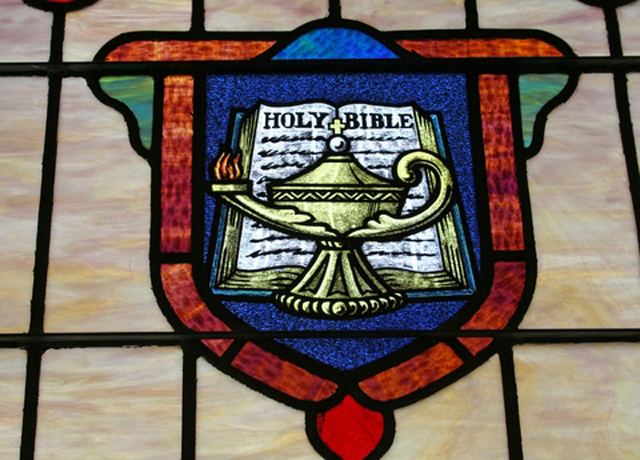
Not all churches observe the seasons of the church year, particularly Lent, the season we are in as I write this. But as I get older I appreciate this time more and more.
I know that many people, including non-Christians, see Lent as a ‘half-empty’ time.
A time for giving up something such as chocolate or wine or some other indulgence. But I see it rather differently. More of a ‘giving in’ to spending more time with God.
In this season of Lent as we read the Bible and spend time in prayer and reflection, we can be reminded of the nuts and bolts of our faith: Jesus’ earthly ministry, his suffering, his death and after that, his resurrection to new life. In abundance.
At this time of year there are often performances of some of the great Passions by composers such as JS Bach. I recently attended a performance of Bach’s St John Passion, which tells John’s version of Jesus’ journey to the Cross. Powerful music that closely follows the Gospel text combined with deeply poignant extended moments of silence – I wonder that anyone could fail to be moved to ask ‘Who the heck was this man? Why on earth did he die?’
We Christians know the story, we retell it often and yet I found new revelations in this music. One revelation was about rules: the crowd brought Jesus before Pilate saying that because it was against their rules to execute anyone, Pilate must order it. (John 18: 31) They demanded the result they wanted, without compromising their law.
That is one of my Lenten observations but it is kind of related to another.
It is probably fair to say that one of the great aspirations of the human race is happiness and we can be very strategic in our plans to achieve this. We are clever; we work on investment in the future, key outcomes, long term goals. We often take stewardship seriously and plan for everything.
And guess what?
As we do this, we are ever conscious of the need to get it right. We constantly review plans, analyse, work on increasing our sense of security. And strive always to get it right.
So too with our Christian faith. We try to base our lives on Biblical teaching, on ‘what the Bible says’. But the danger here is that we can create for ourselves a set of rules and guidelines that, alas, can become rigid – overly religious – and may often miss the whole point.
We like rules. We know where we are with rules and guidelines. We can find plenty of them in both the Old and New Testaments but sometimes we can snatch them entirely out of their context and create a muddle.
Sometimes our head knowledge leads our hearts astray.
How much do we tweak and fiddle with the forms of church: music, liturgy, furnishings; to please everyone? It’s as if we want heavenly perfection here and now, and not have to wait. Maybe if we can just ‘get it right’, then God will be happy and so will we.
Sadly, grace and kindness don’t seem too important in such a model. Besides, it all seems to miss the point, that it’s not what we do now: it’s what God already did. He loved us first. The first thing Jesus gave anyone was love. How loving are we towards others, especially those who are different, and therefore ‘difficult’?
Jesus wasn’t just about rules.
He was about Love. He himself was the ultimate expression of Love, the Love of our Father both for his Son and for his Creatures – us.
In all our striving to ‘get it right’, to follow the rules, we can overlook the need to leave space for kindness and grace.
I don’t think it can be more simply put than in this paragraph by pastor, author and church planter, Tim Keller, Chairman & Co-Founder of Redeemer City to City (CTC) in New York:
The Bible’s purpose is not so much to show you how to live a good life. The Bible’s purpose is to show you how God’s grace breaks into your life against your will and saves you from the sin and brokenness otherwise you would never be able to overcome… religion is ‘if you obey, then you will be accepted’. But the Gospel is, ‘if you are absolutely accepted, and sure you’re accepted, only then will you ever begin to obey’. Those are two utterly different things. Every page of the Bible shows the difference. www.timothykeller.com
.jpg) Sheelagh Wegman is a freelance writer and editor. She enjoys reading, music, sings in the choir of St David’s Cathedral in Hobart and lives in the foothills of kunanyi/Mt Wellington.
Sheelagh Wegman is a freelance writer and editor. She enjoys reading, music, sings in the choir of St David’s Cathedral in Hobart and lives in the foothills of kunanyi/Mt Wellington.
Sheelagh Wegman’s previous articles may be viewed at http://www.pressserviceinternational.org/sheelagh-wegman.html

Sheelagh Wegman is a freelance writer and editor. She is in the community of St David’s Cathedral in Hobart and lives in the foothills of kunanyi/Mt Wellington.
Sheelagh Wegman’s previous articles may be viewed at http://www.pressserviceinternational.org/sheelagh-wegman.html